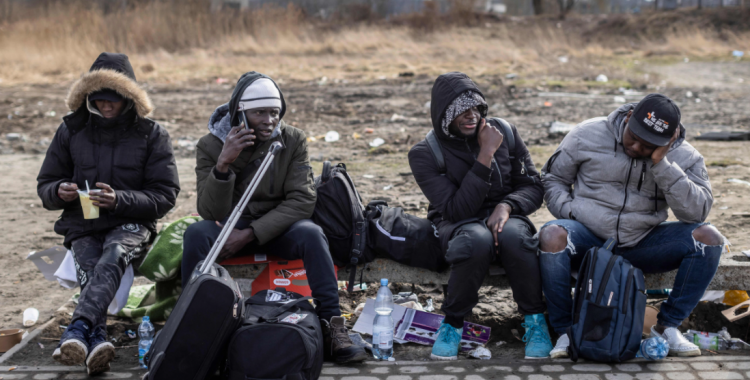With a degree in mining engineering and a master's degree in cadastre management, Carlos is one of the 48 refugees sheltered in the Edifício S. Francisco, in Chamusca, where he arrived by bus on Tuesday, in a group that includes 28 women, one of them (also Angolan) pregnant, 10 men, a baby aged two months and nine children (five of them under 10 years old).
In addition to Carlos Malonda, the group includes four families with elements of Angolan nationality (three Angolans married to Ukrainian citizens and an Angolan couple), in addition to the two-month pregnant girl, as well as two men of Asian origin.
Born in Cabinda, Carlos Barroso Malonda told Lusa that he arrived in Ukraine in November 2013 to graduate in Dnipro, a city six hours from the capital, Kiev, where he took the Russian language preparatory course and graduated in mining engineering, following if a master's degree in registry management.
Even before finishing his degree, Carlos started working in the IT field and had been living in Kiev for two years when, in the early hours of February 24th (the day on which the invasion by Russian troops began), the sound of a bomb woke up.
The evening of that day was spent with friends in a 'bunker', where they heard that there was free train transport to Lviv, he said.
Carlos took his diploma and some valuables and, after facing a crowd struggling to get on the trains, he continued on a journey that should have taken six hours, but took "15 or 16", in crowded carriages, meeting his friends at the station, on arrival in Lviv.
In a taxi they tried to reach the border, but after 30 kilometers, they realized that the cars were not moving forward.
They then covered the remaining 79 kilometers on foot until they reached a border post, where there was "practically a football stadium" of people waiting to cross to Poland.
With the border closed from 23:00 and the intense cold, Carlos said that he slept in a church for "three, four days", while trying to cross the border.
Until, after a night of hearing bombings, he decided to return to Lviv, where a friend took him to another border post with fewer people.
From Poland, he traveled, always by train - with the ease of not paying, saying he came from Ukraine - to Germany, then France and then Spain, always finding support from volunteers, until he arrived in Portugal, where he came with the indication to go to the Red Cross.
"Now, the plan is to wait, we are waiting for an answer and to deal with the documentation to see if we can be legal in the country and we can go on with our lives", he told Lusa.
Carlos wants to find work in land management or land registration, for example in a construction company, or in a mining company, also highlighting the experience of working "with computers, with programmers, website management".
The desire is to "stay right here", in the hope that "things will change" in Ukraine, although he fears that the war will continue. "I would like to come back one day if there is peace," he said.
He often talks to colleagues who stayed and the owner of the house he had rented in Kiev and also finds out in social media groups.
Today he himself saw that, in the region where he lived, a building was bombed.
Portugal has granted 10,068 requests for temporary protection to people from Ukraine since Russia invaded the country on February 24, according to the balance updated on Tuesday by the Foreigners and Borders Service (SEF).
According to the International Organization for Migration, the number of people who fled Ukraine due to the Russian invasion reached three million, including more than 1.4 million children.
On February 24, Russia launched a military offensive in Ukraine, with ground forces and bombing targets in several cities, an attack that was condemned by the general international community.







